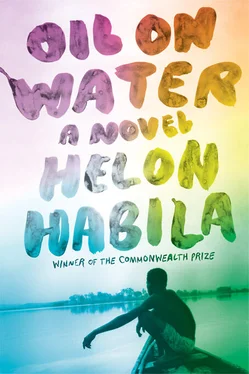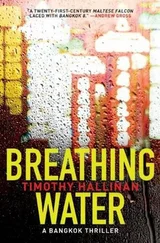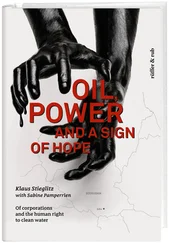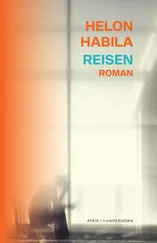— No! We used to have a name, but no more. That is for children and idiots. We are the people, we are the Delta, we represent the very earth on which we stand.
— Are you with the Professor?
— No. I have never met the Professor. We’re a different group, the six of us. That man is with the Professor. Perhaps he can tell you about the white woman. Hey, you, talk to the reporters. Go on, talk.
The scratching and twitching and pain-filled groans had stopped as everyone strained to listen to our talk. Even the mosquitoes had somehow stopped singing around my ears. I turned to look at the man. He was seated by himself near the door, his back pushing into the wall, away from all the eyes suddenly turned on him. He began to shake his head as I crawled toward him, and when I was in front of him he turned his face away.
— Look, you heard what I told him. We’re impartial reporters. All we want to know is where the woman is, if she’s alive.
He mumbled something, his voice coming out like a sob. I leaned closer to him.
— What?
Now he turned to me and even in the dark I could see how young he was — between fifteen and twenty. His face was smooth, hairless.
— His name is Gabriel. He was here before we came, at least two days.
The voice came from one of the faces seated around Henshaw — possibly from the one named Taiga.
— Gabriel, I’m Rufus. Have you heard anything about the woman? We saw the battle with the soldiers — were you there? Did you hear any of your friends talking about it? We saw dead bodies. Were you there? Were you captured, did you surrender?
— Come on, man, stop whimpering like a girl and talk. Talk! Taiga, make him talk!
The threat did the trick. For the first time the boy nodded his head instead of shaking it. He raised his head and looked into my eyes and now his words came out coherently. He’d been there, at the battle. But he didn’t say anything more after that, and when I threw more questions, he looked defiantly from me to Taiga.
— Why don’t you find out, since you’re a reporter?
I crawled back to where Zaq lay and sprawled out beside him. I didn’t feel as if I had gained much information. I still hadn’t found out anything new about the woman. Had she escaped? I hoped not, because she had no way of surviving out there in the swamps by herself: first of all, her skin would be her worst enemy, it’d emblazon her presence like lightning in a dark night wherever she went, and she might escape from one kidnapper only to end up in the hands of another.
TOWARD MORNING, WHEN A PINK light stitched in through the million micro-openings in the roof thatch, Henshaw crawled over to my side and shook me awake. I sat up beside him, our shoulders touching. Outside, the bugle sounded.
— I know exactly what they’re doing out there: right now the soldiers will be in line, shoulder to shoulder, all twenty of them, one sergeant, two corporals and the rest privates, all standing at attention, and he’ll be telling them why they must hate the militants, why they must fight to keep the country safe and united. Ten minutes of that. I’ve been here four days now and I know exactly what they do every minute of the day. I can tell you what they eat, what they think, who is tired of the Major’s demented patriotism and just wants to go home. We’ll outlast them. That’s all we need to do. Sit tight. Wait. This land is ours, after all.
He paused, his eyes closed. All the other faces were staring at him, but their ears were focused on something farther off, somewhere close to where the bugle had sounded, waiting. And yes, there was a distant sound of a voice, firm, authoritative. Too far away for the words to register. After what seemed like ten minutes, he resumed his commentary.
— Now he’s walking in their midst, putting a hand on this one’s shoulder, reprimanding that one for a smudge on his boots — imagine reprimanding a soldier for a smudge here in the jungle. . and now he is dismissing them. Five of them are coming this way, guns firmly clasped in both hands, trotting, and here they are.
Footsteps came to a stop in front of the hut, and Zaq and I waited to see what was going to happen. The door was kicked open, and two soldiers entered in a splash of morning sunlight. The others waited outside.
— Oya, stand up. Single file. Proceed outside.
It was the tallest of them speaking. They didn’t kick or hit the prisoners, they just stood there, their guns ready, waiting for the men to get in line.
The Major waved his hand toward the approaching shoreline, buthis voice was drowned out by the noise from the helicopter that suddenly appeared above us, like a bird of ill omen. The Major looked up, then he took out his radio and put it to his ear. When he finished speaking his face had a satisfied grin.
— Be prepared for what you are about to see. Irikefe is now mostly ashes and rubble, bombed by the gun helicopter over there. Not a hut is left standing. .
— What of the people?
— Most of them would still be there, I suppose. But expect a lot of casualties, unavoidable, of course. This is a war zone. . Look, look, you can see the smoke from here.
We descended from the boat into the restless water. On the shore was a line of soldiers in battle gear, pointing their guns at us. They led us toward the trees and then to a field of rubble, which I saw was all that was left of the sculpture garden. Memory is nothing but a view through a car window, fast-changing, impressionistic. Of all the things that I saw that day, and all the words that I heard, what made the most impression was the sight of the broken statues. The arms and legs and heads sundered from the body. I recall a face, its expression of terror so lifelike, the eyes so mobile staring up at me as I passed, its nose broken, its mouth half open and eager to share its secret. And later, when I voiced my lament to Naman — Look, they broke the statues — he smiled sadly and nodded and said, Everything that was made must one day cease to be. It is the nature of existence.
The fighting was over when we got off the boat, but the earth was still smoldering with the remains of battle, the huts still gave out smoke, and soldiers still fired guns sporadically into the air as they corralled the villagers into one big clearing, trying to determine who among them was a militant and who wasn’t. I couldn’t recognize the hut where we once slept, and the log on which I once sat. Zaq sat down heavily on the first surface he found. I couldn’t sit — I mingled with the worshippers, trying to see if I could find a familiar face, Gloria, or Naman, and yes, here was a familiar face, even though half of it was swollen and covered with blood. It was a man who’d been seated with Gloria and Naman, eating dinner, and if I hadn’t been looking keenly, peering almost rudely into the faces, I wouldn’t have recognized him. His once-pure-white robe was now specked with the green of crushed leaves and the rust and red of blood, and the one side of his face capable of expression looked vacant, vague, tired, like a man after a long trek, thirsty, but unsure where to look for water or rest. When I stopped next to him and took his hand and introduced myself, he licked his chapped lips and tried to smile.
— Ah, the reporter. But what are you doing here? This place is very dangerous for you. You shouldn’t have returned.
— Where’s Gloria and Naman?
He pointed vaguely and continued walking, his eyes looking around for something in the rubble. A woman took me to Naman. He was surrounded by a group of women, all weeping and holding one another, and he went from one to the other, calming them down. I shook his hand and he told me to sit beside him. Like the others’, his white robe was covered in blood, maybe his, maybe not. I couldn’t think of anything to say. I pointed.
Читать дальше












